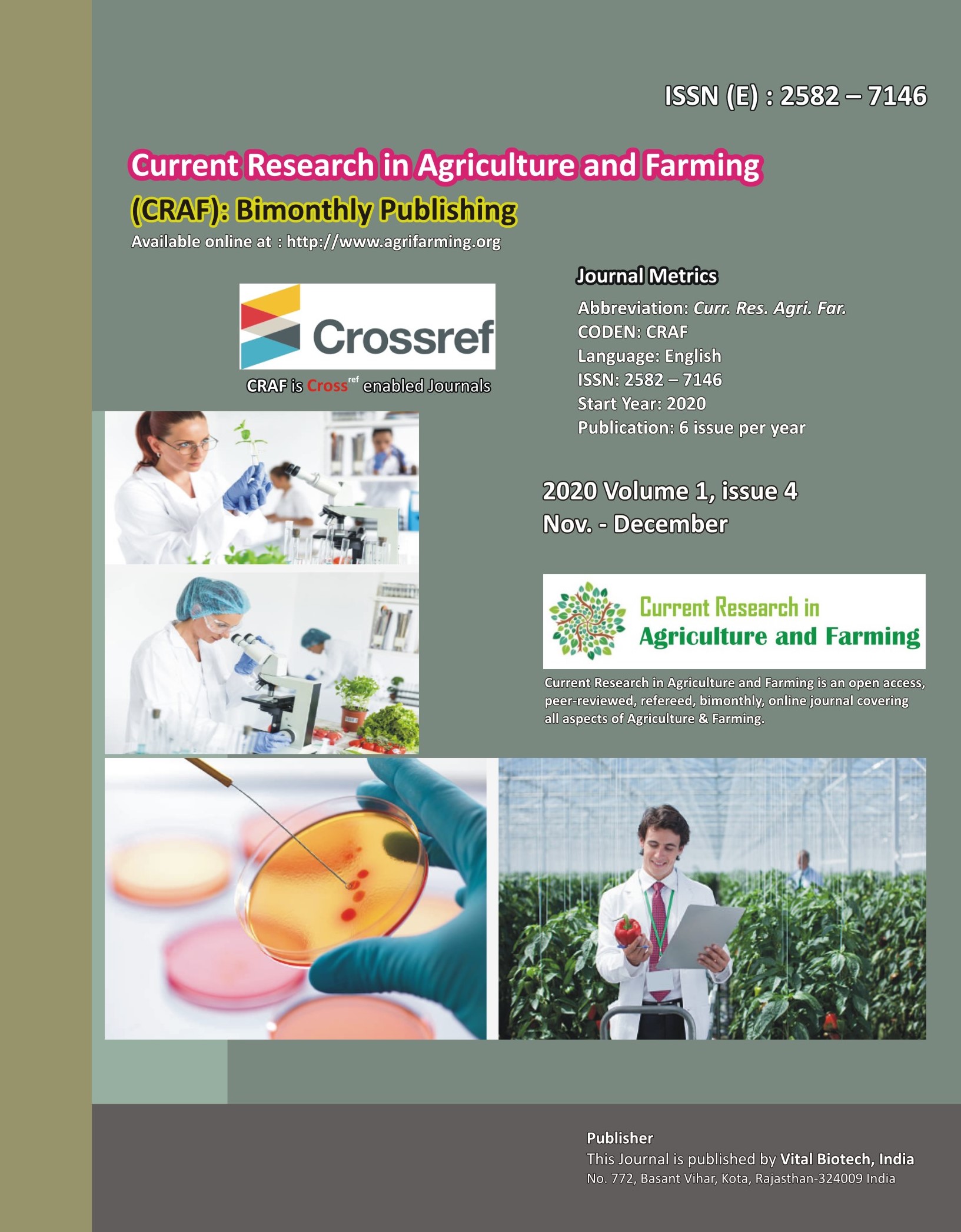

Current Research in Agriculture and Farming (CRAF)
Year : 2020, Volume : 1, Issue : 4
First page : (19) Last page : (23)
Article doi: : http://dx.doi.org/10.18782/2582-7146.120
Shaikh Amjad Salam1, Muhammad Shozib Javed1, Muhammad Danish Toor1, Muhammad Adnan2*, Muhammad Awais3, Muhammad Mughees Ud Din4, Muhammad Sulaman Saeed5, Fazal ur Rehman6 and Koko Tampubolon7
1Department of Soil and Environmental Sciences, University College of Agriculture, University of Sargodha
2Department of Agronomy, College of Agriculture, University of Sargodha, Pakistan
3Department of Entomology, Faculty of Agriculture, Islamia University Bhawal pur, Bhawal pur, Pakistan
4Institute of Soil and Environmental Sciences, University of Agriculture Faisalabad
5Department of Plant Breeding and Genetics, University of Agriculture, Faisalabad, Pakistan
6Department of Plant Pathology, College of Agriculture, University of Sargodha
7Program Study of Agro technology, Faculty of Agriculture and Animal Husbandry,
Universitas Tjut Nyak Dhien, Medan. Sumatera Utara, Indonesia
*Corresponding Author E-mail: mughal3368@gmail.com
Received: 10.11.2020 | Revised: 14.12.2020 | Accepted: 23.12.2020
ABSTRACT
Industrial wastewater has many effects on physical as well as physiological properties of soil and plants. The wastewater encloses the extraordinary levels of PO43-, NH4+, SO42-, and NO3- and Magnesium, Calcium, Potassium, Sodium, Copper, Zinc, Nickle and Iron. To some extent, the application of industrial wastewater in term of sewage irrigation has been observed as a suitable way to solve the agricultural water shortage problem. Waste water used for irrigation is valued by growers, generally due to its nutrients, consistency of supply and positive influences on agriculture. This review article illustrates both constructive and destructive properties of wastewater used in agriculture. Furthermore, it also highlights the effects of industrial wastewater on the soil environment as well as plant physiological system.
Keywords: Irrigation, Industrial Discharging, Soil Environment, Agriculture.
Cite this article: Salam, S. A., Javed, M. S., Toor, M. D., Adnan, M., Awais, M., Ud Din, M. M., Saeed, M. S., Rehman, F. ur., & Tampubolon, K. (2020). Influence of Industrial Waste Water on Soil and Plants: A Review, Curr. Rese. Agri. Far. 1(4), 19-23. doi: http://dx.doi.org/10.18782/2582-7146.120

